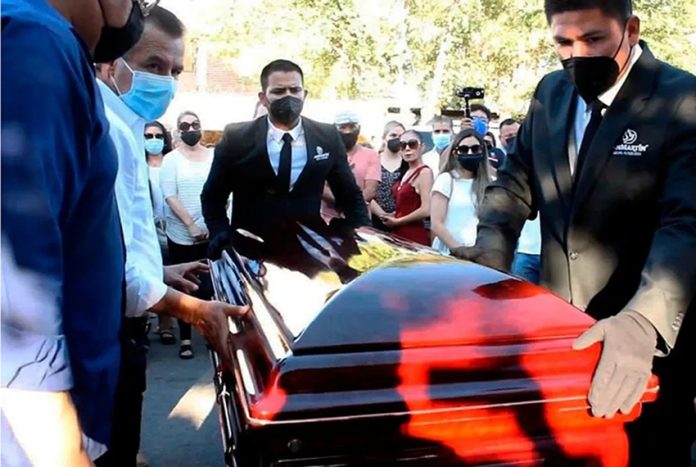It’s campaign season in my city right now.
The way I know this is because every once in a while I’ll go outside and there will be what appears to be a small but enthusiastic parade of people in matching t-shirts and flags, often complete with a drumline and dancers.
These events always amuse me, and I often ask myself where they get all the people to participate in them. When it comes to politics, most people don’t seem to be “joiners.” So, my only guess is that they’re mostly made up of people who work in the campaign offices or are otherwise connected to the candidate or party.
Since I am not a citizen of Mexico and cannot vote, I don’t pay quite as much attention to the more minor campaigns for local office. But even as someone on the periphery of local Mexican politics, it’s clear to me that some care very much about who wins since an extensive list of promises for funding of certain projects and posts are made during campaigns.
This was made extremely clear to me when I read about the recent murder of mayoral candidate Abel Murrieta as he was campaigning in Ciudad Obregón, the 32nd candidate to be killed in this period leading up to the June 6 elections. (As of publication, 34 candidates for public office have been murdered.)
It makes you wonder why anyone decides to run for office at all.
Common wisdom (and real data from Etellekt Consultores, which tracks these gruesome crimes) is that most victims are mayoral candidates running against incumbents and do not have permission to do so from the local criminals in charge.
Not to be cynical, but for me, this begs the question: does this mean that the ones who do run “safely” and manage not to get gunned down are doing so with the permission of crime bosses and their political friends? If so, what does that imply for the work they’d do once elected?
Violence in Mexico, of course, is nothing new, especially since president Felipe Calderón whacked the hive of narcos back in 2006 by declaring war on them. Since then, getting those crime and murder rates back down has been about as easy and achievable as putting aerosol air freshener back into its container, and no one seems to have come up with a solution for it yet.
What needs to happen? Is there a solution?
It’s no secret that narcos have been running things in ways both scary and embarrassing for a while now. And while I found myself nodding in agreement with navy chief José Rafael Ojeda when he complained that some members of the judiciary seemed to be on the side of criminals, I was also alarmed, along with Human Rights Watch Americas, that he’d go so far as call judges “the enemy.”
Doing so, especially with the president at his side, simply seemed to echo the latter’s own alarming tendency to demonize anyone who appears to contradict him, including the Supreme Court and a great number of individual journalists and entire publications.
But let’s suppose that the courts are indeed corrupt and that even if judges wanted to do things “right,” they risk the murder of themselves and their families for not obeying orders from those who run things with their weapons and extensive network of lackeys. Is there anything to be done about it really?
After all, much of our newly formed National Guard is being used as border patrol instead of taking communities back from narco control. And though President López Obrador insisted that he was wrong, it’s hard for anyone to really argue against a United States general’s claim that a third of Mexico is essentially “ungoverned” (by the country of Mexico, anyway).
And it’s hard to believe in the president’s true opposition to corruption and loyalty to justice when he moved to immediately exonerate General Cienfuegos upon repatriation to Mexico.
But back to the narcos.
These criminal organizations are no longer about simply moving their drugs up to the hungry U.S., although that is still part of their business. They’re diversifying into terror at the local level, involving themselves in human trafficking, “pay for protection” schemes and, of course, more types of drugs.
The saddest truth of all this is that in so many areas, they’re the best, most stable employment opportunities for young people in town (and even if they weren’t, if the option is “work for us or we kill you,” you can guess what most people would choose).
As some analysts have said, narco organizations have taken on the structure of multinational corporations rather than simply criminal gangs at this point. They’re sophisticated and they’re well-funded … more so than the justice system at all levels, a fact that they use to their advantage.
Where the Mexican rule of law is lacking, they fill up the available space. And let me tell you, they’ve shown us a lot of holes.
So what can we do about it? For once, I’ve got few ideas.
Strengthen the police force or strengthen the legal system? But how could we make them corruption-proof? More money would be a good start, I suppose, as it always is.
But can we put more money into them than the narcos are putting into their own organizations? Can we take money away from criminal organizations? Close bank accounts?
When it comes to sophistication and organization, they seem to have us beat, or at least be on the same level. They’ve infiltrated nearly every level of society and have made the government system work for them.
Hearts and minds (hugs, not bullets) was worth a try, but it’s not getting us anywhere. Time to majorly step up our game.
Sarah DeVries is a writer and translator based in Xalapa, Veracruz. She can be reached through her website, sdevrieswritingandtranslating.com.
